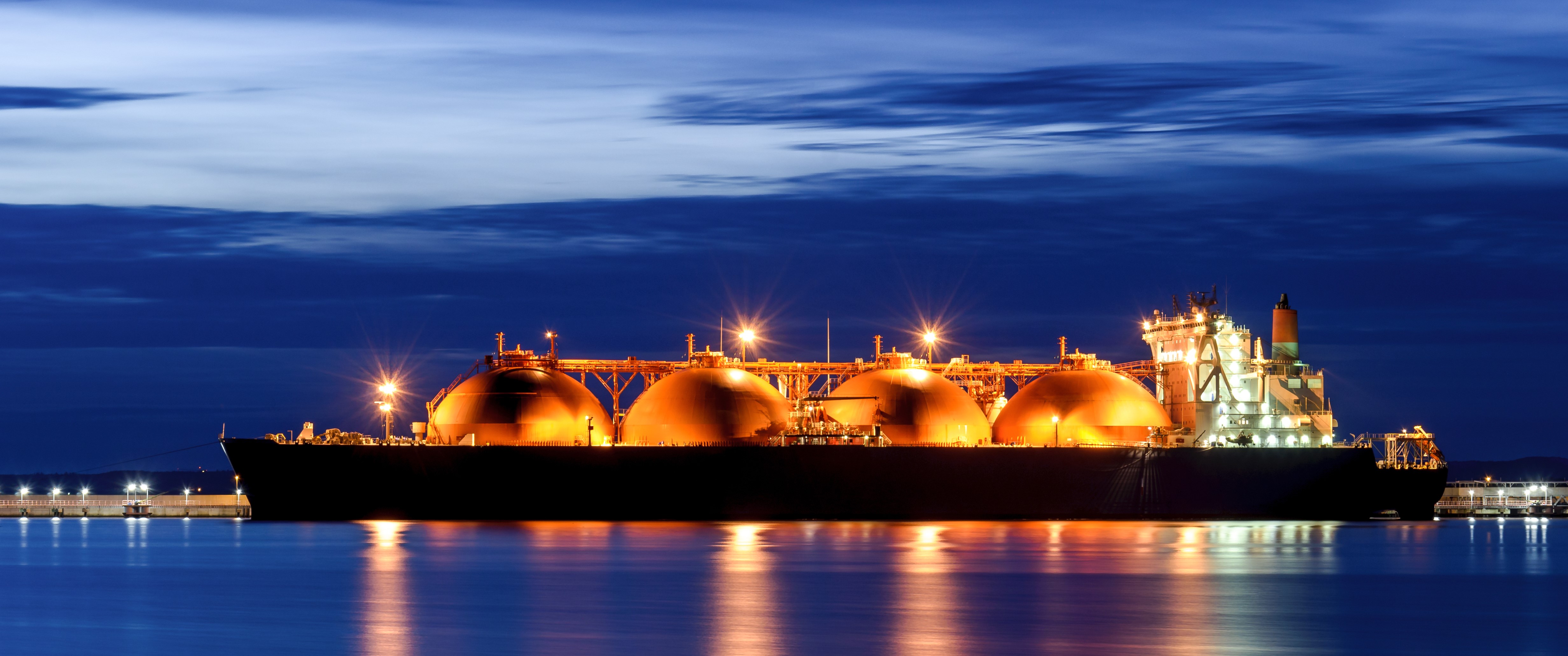
GE Gas Power and Shell sign Development Agreement to collaborate on LNG Decarbonization Pathway Using Hydrogen
Published by Todd Bush on November 15, 2022
GE will collaborate with Shell to develop potential lower-carbon solutions aiming to reduce the carbon intensity of Shell’s LNG supply projects around the world
Under this agreement, GE will accelerate development for the use of 100% hydrogen as a low carbon fuel for gas turbines
Focus will be on hydrogen solutions for B&E class gas turbines used in LNG and power generation applications
Atlanta, GA; November 7, 2022 – GE Gas Power (NYSE: GE) and Shell Global Solutions, a pioneer in liquefied natural gas (LNG) for more than 50 years, announced today they have signed a development agreement to pursue potential pathways aiming to reduce the carbon intensity of Shell’s LNG supply projects around the world. With global LNG demand projected to almost double by 2040, decarbonization is crucial in helping the company meet the world’s growing energy needs.
>> In Other News: Dandelion Energy Closes $70M Series B1 Funding Round to Scale Geothermal Heating and Cooling Solution to Meet Surging Demand
The largest source of emissions in an LNG facility stems from firing natural gas in the power generation and mechanical drive gas turbines. Therefore, one of the possible paths to decarbonize LNG production is to use hydrogen as a low carbon fuel in these engines. However, the source and nature of this fuel matters as well, and Shell’s Blue Hydrogen Process is a leading technology that can deliver the lowest carbon intensity fuel of its kind, with technologies and building blocks tested and commercially proven at a large scale, that have been used in various industries for many decades.
“Having worked on hydrogen combustion technologies for many years, we are conscious that progress in this area will be the result of careful, dedicated research and collaboration by industry leaders and today’s announcement is a model of this approach,” said John Intile, Vice President, Engineering at GE Gas Power. “We look forward to working in cooperation with Shell to advance this crucial body of work. Together, we’re confident our combined strengths of Shell, GE, and Baker Hughes, who is exclusive distributor of certain heavy duty gas turbines and services in the oil & gas segment, can accelerate the deployment of pragmatic and impactful solutions towards high-hydrogen capabilities in these gas turbines fleets resulting in a significant reduction of carbon emissions and water utilization globally.”
The deep decarbonization of LNG export facilities presents both technical and economic challenges, which need to be addressed to realize such ambition. “Becoming a net-zero emissions energy business means we need to explore a range of avenues that have the potential to help us, our partners and customers reduce emissions” said Alexander Boekhorst, VP Gas Processing and Conversion Technology at Shell. “We have continued to innovate and improve the value proposition of LNG using technology, and we look forward to collaborating with GE on this important initiative”.
GE's B&E class heavy-duty gas turbines can already operate today on 100% hydrogen emitting up to 25ppm NOx with the use of water in diffusion combustors. As part of this development agreement, GE is targeting gas turbine technology with the capability to operate on 100% hydrogen without the use of water while still maintaining NOx emissions.
The new DLN combustor technology is intended to become the backbone of new retrofittable system solutions for low-carbon operation of gas turbine while providing the reliability and availability required for LNG facilities. Dry operation also represents significant savings in water use and conservation: up 32,000 liters of water per hour are saved using DLN systems versus comparable alternatives.
DLN combustors are more efficient and do not use water as a diluent, thus offering LNG operators the ability to lower carbon and conserve water in their operations. In future, the developments to the DLN combustion technology could be installed on either new or existing 6B or 7E gas turbines. This would help reduce carbon emissions in industrial applications and LNG operations, particularly where water usage is challenging.
From desert climates to the tropics to the arctic cold, the B and E Class heavy-duty gas turbines provide essential power and perform in a vast number of duty cycles and applications in extreme climate conditions where reliability is key. These turbines can use more than 50 types of fuel— almost the entire fuel spectrum, including hydrogen —and can even switch fuels while running under full load.
About Shell plc
Shell plc is incorporated in England and Wales‚ has its headquarters in London and is listed on the London‚ Amsterdam‚ and New York stock exchanges. Shell companies have operations in more than 70 countries and territories with businesses including oil and gas exploration and production; production and marketing of liquefied natural gas and gas to liquids; manufacturing‚ marketing and shipping of oil products and chemicals and renewable energy projects.
For further information‚ visit www.shell.com. The companies in which Shell plc directly and indirectly owns investments are separate legal entities. In this document “Shell” is sometimes used for convenience where references are made to Shell plc and its subsidiaries in general.
About GE Gas Power
GE Gas Power is a world leader in natural gas power technology, services, and solutions. Through relentless innovation and continuous collaboration with our customers, we are providing more advanced, cleaner and efficient power that people depend on today and building the energy technologies of the future. With the world’s largest installed base of gas turbines and more than 670 million operating hours across GE’s installed fleet, we offer advanced technology and a level of experience that’s unmatched in the industry to build, operate, and maintain leading gas power plants. For more information, visit the company's website at www.gepower.com.
GE Gas Power is part of GE Vernova, a dynamic accelerator comprised of our Power, Renewable Energy, Digital and Energy Financial Services businesses, focused on supporting customers’ transformations during the global energy transition.
Subscribe to the newsletter
Daily decarbonization data and news delivered to your inbox
Follow the money flow of climate, technology, and energy investments to uncover new opportunities and jobs.
Companies
Latest issues
-
96% Pure H₂ Found Underground — Now What?
Inside This Issue 🧪 HyTerra's Kansas H₂ Could Power a Historic Industry First 🤝 Prime Minister Carney Secures Ambitious New Partnership With India Focused on Energy, Talent, and Technology Françai...
-
What Do Submarines Have to Do With Hydrogen?
Inside This Issue 🚢 Hyundai Pitches Hydrogen Transport Tied To Canada Submarine Bid 🧱 The LEGO Group Expands Its Portfolio Of Carbon Removal Solutions 🏆 SAF Pioneer LanzaJet Honored With RFA Indus...
-
This $4.1M Deal Could Change Carbon Capture's Playbook
Inside This Issue 🗜️ CarbonQuest Lands $4.1M Alberta Deal on Gas Compressors 🛡️ CADO, 123Carbon, and Assure SAF Registry Join Forces to Tackle SAF Integrity Gaps ✈️ ISCC, OMV, and Airbus Partner t...
Company Announcements
-
Green Hydrogen Without Forever Chemicals And Iridium
In the EU project SUPREME, an international research team with the participation of TU Graz is developing an electrolyser to produce green hydrogen more sustainably and efficiently. Green hydrogen...
-
Vancouver, BC, Canada, March 02, 2026 (GLOBE NEWSWIRE) -- Global Power Solutions Corp. (TSX Venture Exchange: PWER; Berlin and Frankfurt Stock Exchanges: NJA) (“Global Power” or the “Company”) is p...
-
Joint Statement By Prime Minister Carney And Prime Minister Modi
At the invitation of His Excellency Narendra Modi, Prime Minister of India, the Right Honourable Mark Carney, Prime Minister of Canada, paid an official visit to India from February 27 – March 2, ...
-
In a rapidly changing world, Canada is focused on what we can control. We are building our economic strength at home and diversifying our partnerships abroad. As the world's fastest-growing major e...
